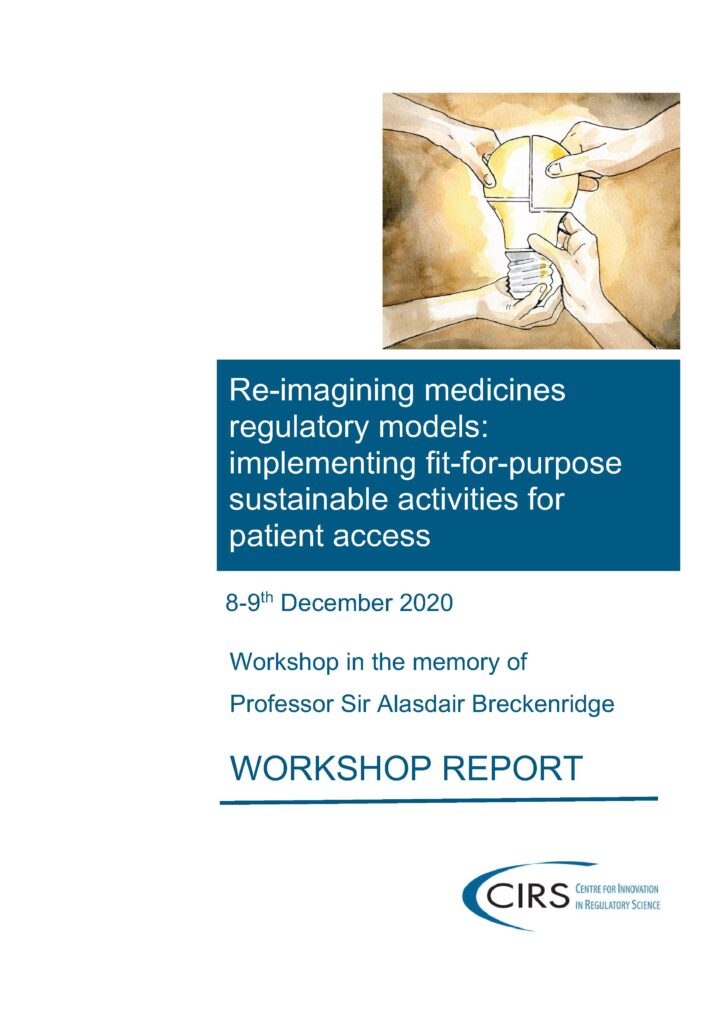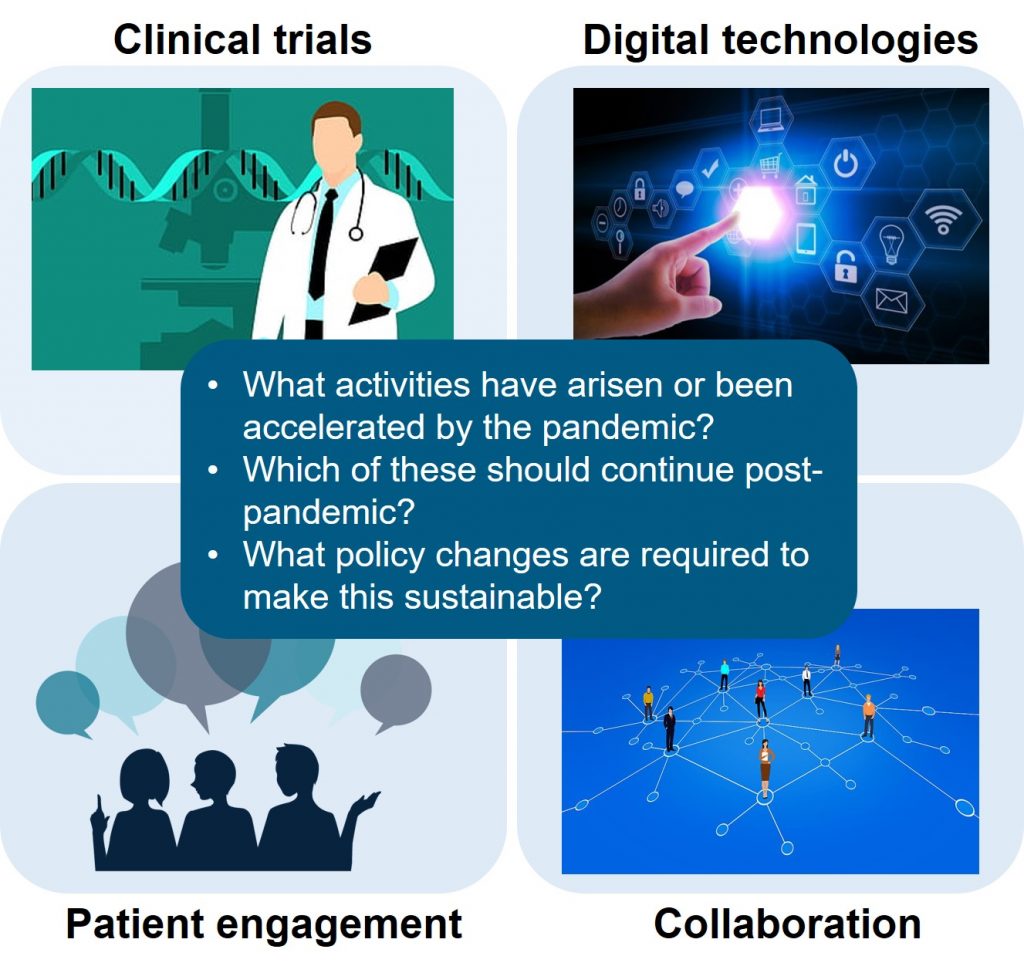As the regulatory landscape changes to meet new challenges, such as increasingly sophisticated medical innovations, fundamental questions are being raised: What is the role of a ‘modern’ regulator today? Does the regulatory paradigm need to be reconstructed to meet future demands? These questions need to be addressed if regulators are to remain relevant as well as being part of the solution for the sustainable development and review of innovative medicines.
This issue has been confronted from a practical standpoint by the COVID-19 pandemic, as regulatory and Health Technology Assessment (HTA) systems globally have been (and continue to be) challenged to support the pandemic response. There has been increased stakeholder dialogue to identify where flexibilities are possible and can be enacted within an agency’s legal framework. These have covered areas such as supply chain; conduct and reporting of clinical trials; manufacturing, inspection and quality audits; authorisation review processes; and post-authorisation activities.
As well as challenges, the pandemic has also created opportunities for developing and evaluating new medicines, such as in the areas of clinical trials, digital technologies, patient engagement, collaborative working and knowledge sharing. It will be important to carry these learnings forward into future regulatory models, for both emergency and non-emergency situations.
To evaluate whether current regulatory models are meeting evolving needs for medicines, CIRS held a virtual multi-stakeholder workshop on 8-9th December 2020. The workshop was held in memory of world-leading regulatory expert, Professor Sir Alasdair Breckenridge, who had challenged CIRS to consider this topic prior to his death in December 2019.
Workshop objectives
- Discuss current regulatory models and whether the regulatory paradigm for development and review needs to evolve to meet current and evolving needs.
- Identify opportunities and challenges to re-imagine the regulatory assessment process:
- Potential areas for change that have been exposed by the pandemic
- Traditional areas of activity the pandemic has exposed and that can be adapted flexibly; which of these can form the basis of a sustainable model(s) across all products and therapy areas post-pandemic?
- Activities that have increased or have been accelerated by the pandemic
- Make recommendations on activities that should be considered to evolve a sustainable, fit-for- purpose model(s) for the development, review and access of new medicines.
The last objective was achieved through breakout groups during which workshop participants discussed lessons learned from four areas that had to fundamentally change because of the pandemic: clinical trials, digital technologies, patient engagement and collaboration. The outputs of these breakouts were summarised initially (prior to this workshop report) in an R&D Briefing to help inform future work and thinking in the studied areas as well as more sustainable regulatory models for the development and review of new medicines.


